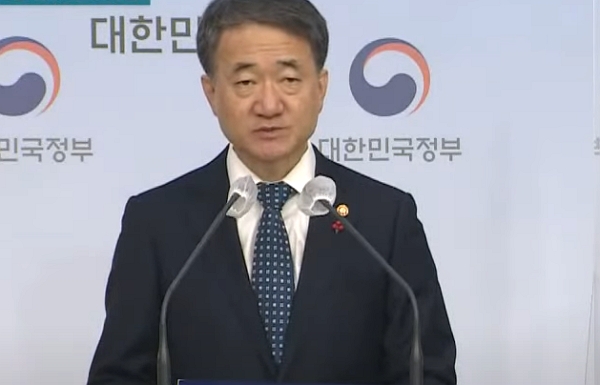The Korean government will pre-purchase Covid-19 vaccines enough to inoculate 44 million people from global pharmaceutical companies. It has already signed contracts with some of them, including AstraZeneca, and fixed purchasing amounts with the others.
In a news conference Tuesday, Minister of Health and Welfare Park Neung-hoo said that the government has preordered 64 million doses of vaccines from four developers -- AstraZeneca, Pfizer, Johnson and Johnson's Janssen, and Moderna – for 34 million people. It plans to bring in the preordered amount from next March at the latest.

The other 10 million people will be inoculated with the amount secured through Covid-19 Vaccines Global Access Facility (COVAX).
It has signed a contract with AstraZeneca to buy 20 million doses, Park said. As the vaccine of the British-Swedish company requires two injections per person, the government’s purchase can inoculate 10 million people. The government will also purchase 20 million doses each from Pfizer and Moderna, which also required two shots, and buy 4 million doses from Johnson & Johnson’s Janssen, which requires one shot.
It formed a task force of related ministries and experts in June and has been conducting consultations with global companies leading the development of vaccines for the preorder.
However, the negotiations were extended as the ministry continuously requested clinical data from vaccine developers to check safety and effectiveness, according to Minister Park. The government will closely monitor the development trend of vaccine development and actively secure the required amount.
People who will be vaccinated first will be vulnerable groups, including elderly people, care home residents, and healthcare workers. The rest of the population will get vaccines in the order of risk, including their clinical vulnerability. Up to 36 million out of the nation’s total population of 50 million will belong to these groups.
The government expects that it will face difficulties in preparing vaccination processes, such as storing conditions of the vaccine and the short shelf life.
Minister Park revealed that some vaccine developers had made unreasonable demands, requesting exemption from side effects, during the negotiation process, but the government had few other options but to accept them.
"These demands were difficult to accept compared to other vaccines and medicines," Park said. "Please understand that although there is an unfair part of the contract, it is a common phenomenon around the world. It is difficult for us to avoid or reject it."
He stressed that the government would conduct safety tests after bringing in the vaccines and monitor post-vaccination cases in other countries.

